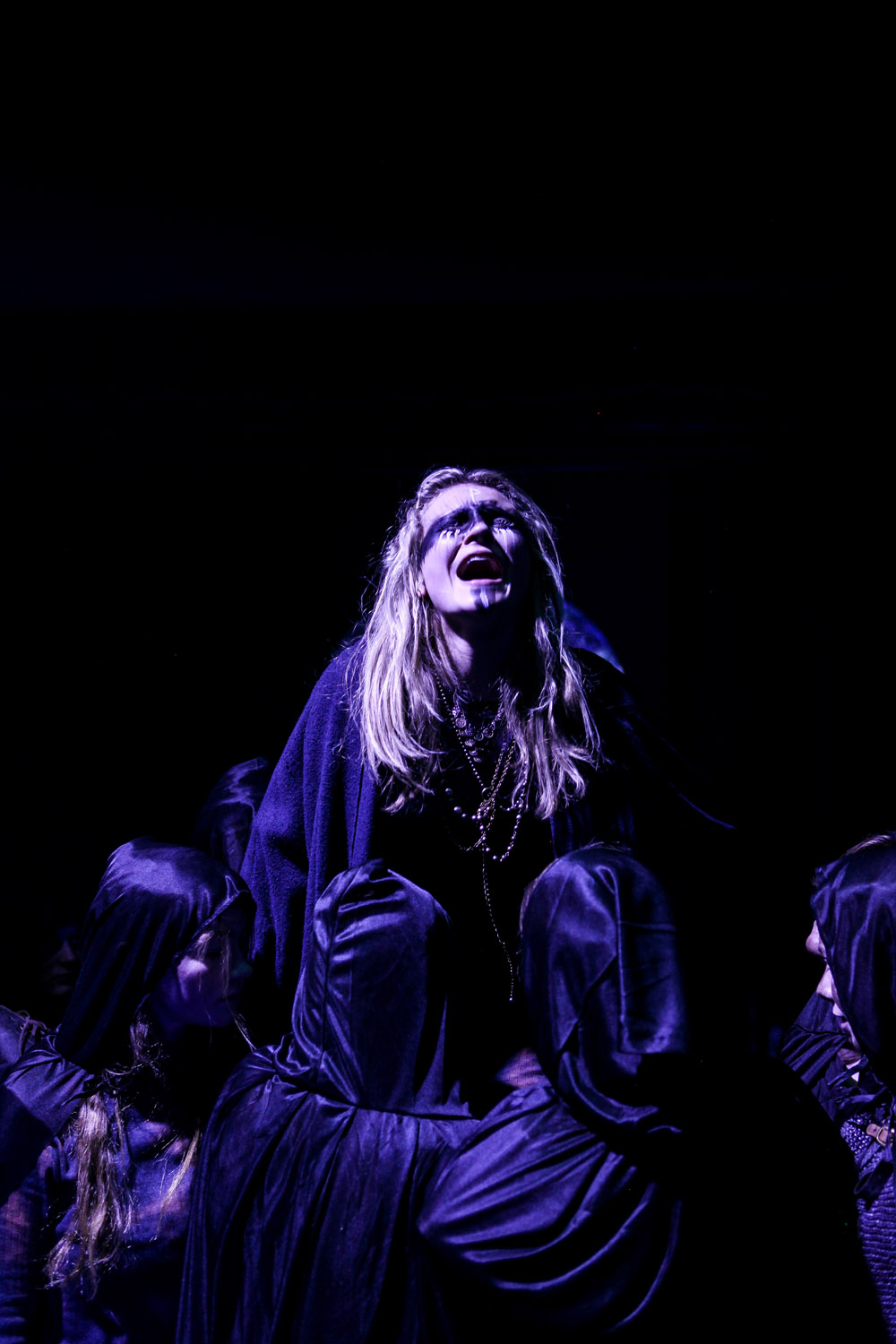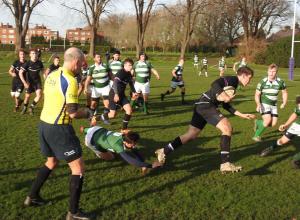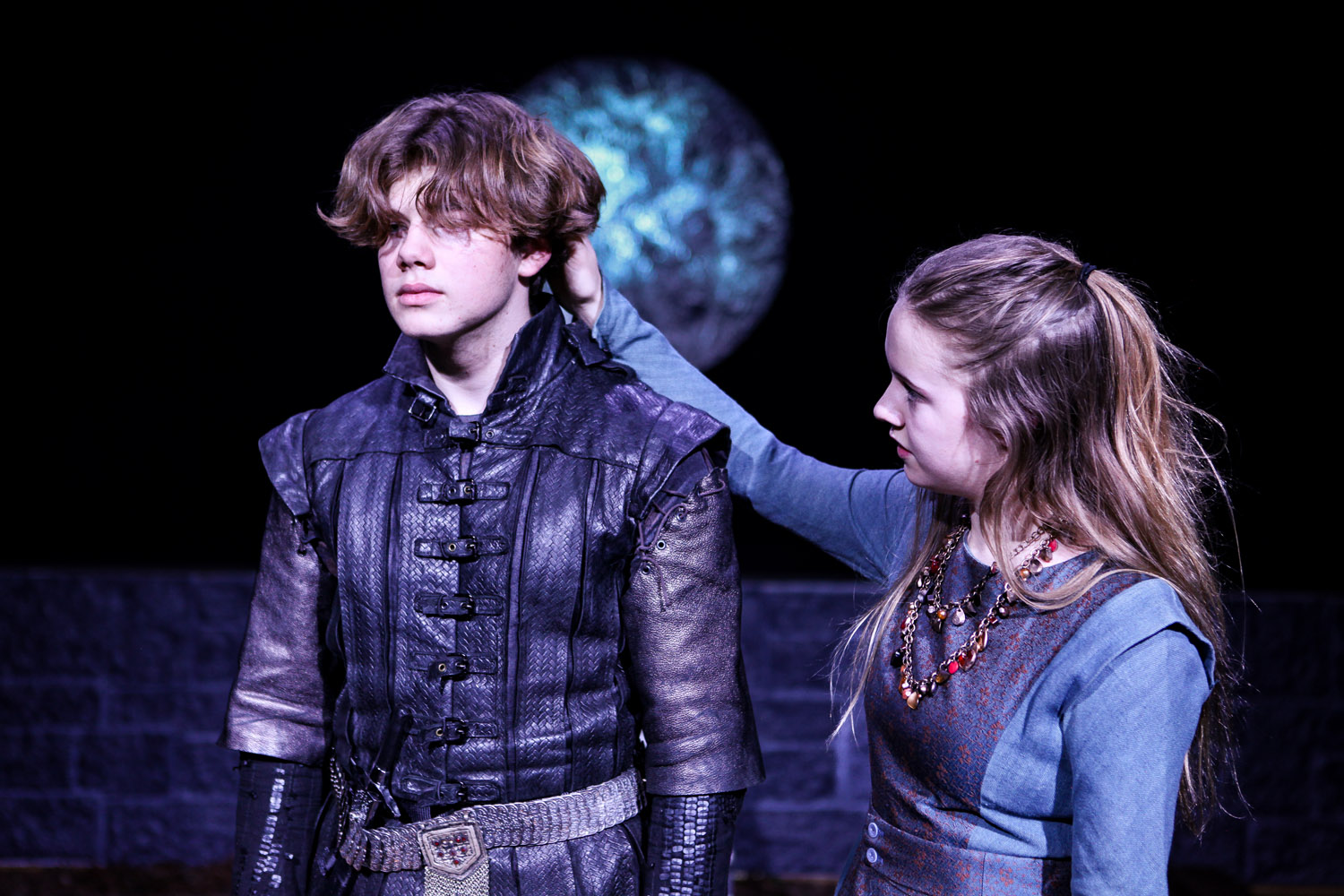 Harrodian English Teacher, Mr Digby Don hails a raw and hard-hitting, five star school production of Macbeth
Harrodian English Teacher, Mr Digby Don hails a raw and hard-hitting, five star school production of Macbeth
We’ll have thee, as our rarer monsters are,
Painted upon a pole and underwrit,
‘Here may you see the tyrant.’ (Macbeth Act 5,Scene 8)
Macduff’s death knell to Macbeth in the play’s final moments would undoubtedly have struck a chord with the play’s first audiences in 1606.
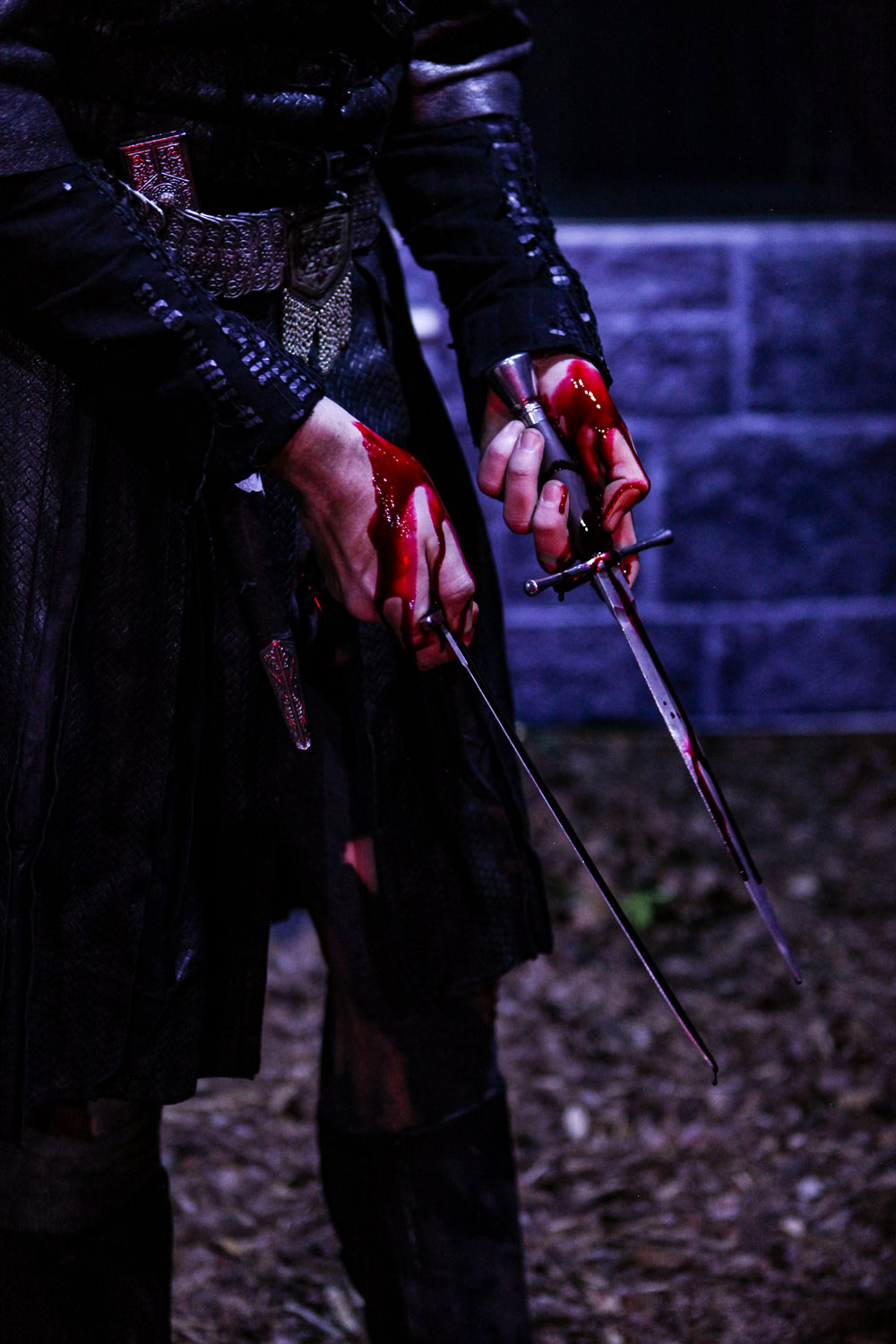
According to King James 1st’s diary, after all, in the previous year, on the 12th November 1605, when the captured gunpowder plotters had been paraded through the streets of London they were ‘met with a huge confluence of people, of all sorts, desirous to see them, as the rarest sort of monsters’. This entry is unsurprising in light of the fact that Londoners had long been fascinated with both exotic beasts and public executions. As early as 1235 Henry III had turned the Tower of London into a zoo, complete with its rarest monster, an African Elephant. Meanwhile, since the late 1100s, the scaffold had provided entertainment for citizens, of all sorts, desirous to observe convicted criminals meet their (often grizzly) end.
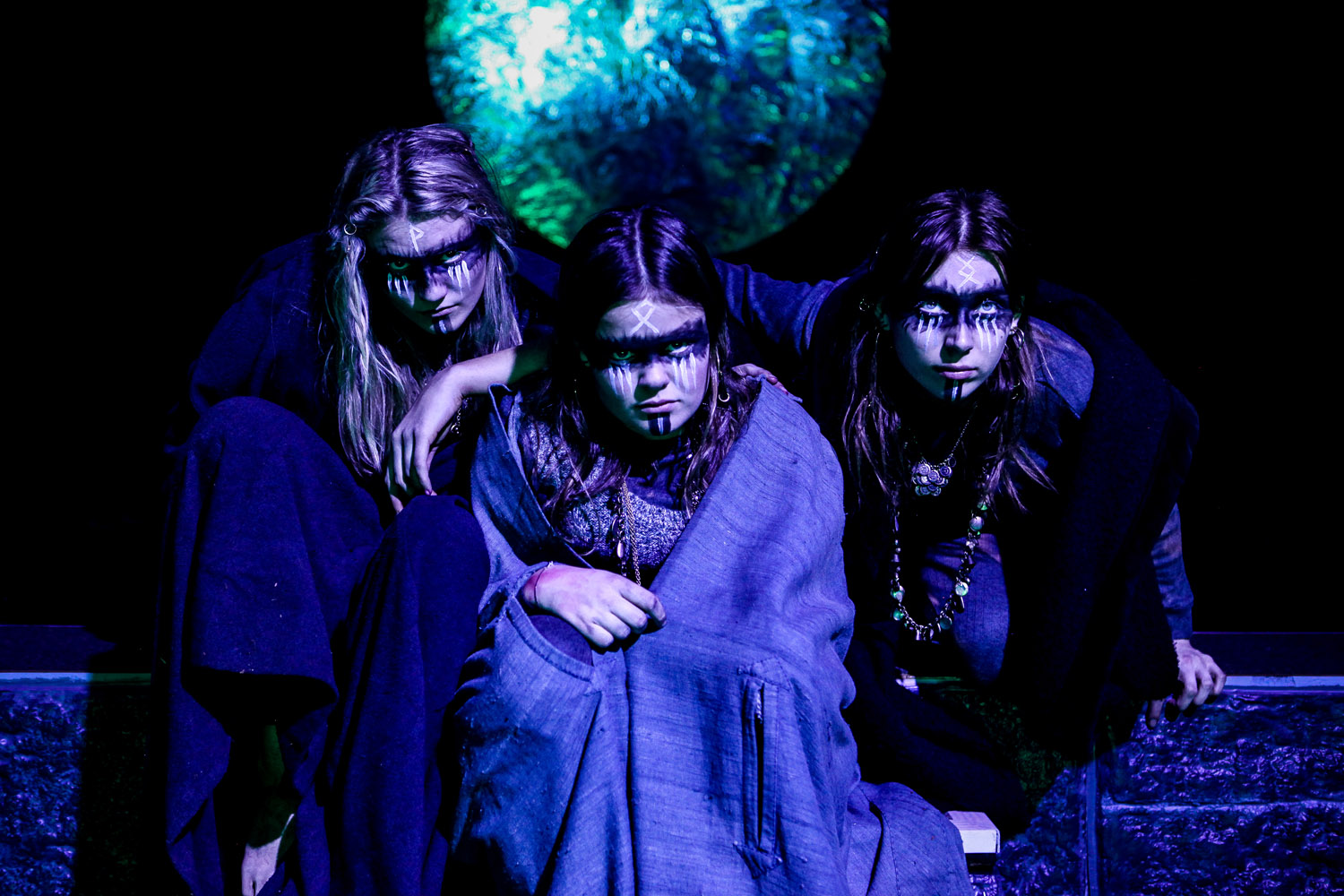
Shakespeare is unlikely to have read the King’s diaries but it is clear that Macbeth is not himself even considered a King by the avenger, Macduff. Not only is he a tyrant but he is also an interloper, a traitor and usurper of a kind fit to be displayed in front of the crowds like the November 1605 conspirators.
James I, who attended the first performance of Macbeth, would undoubtedly have approved of the fall and punishment of the regicidal Macbeth and his ‘fiend-like queen’
Digby Don, English Teacher, Harrodian
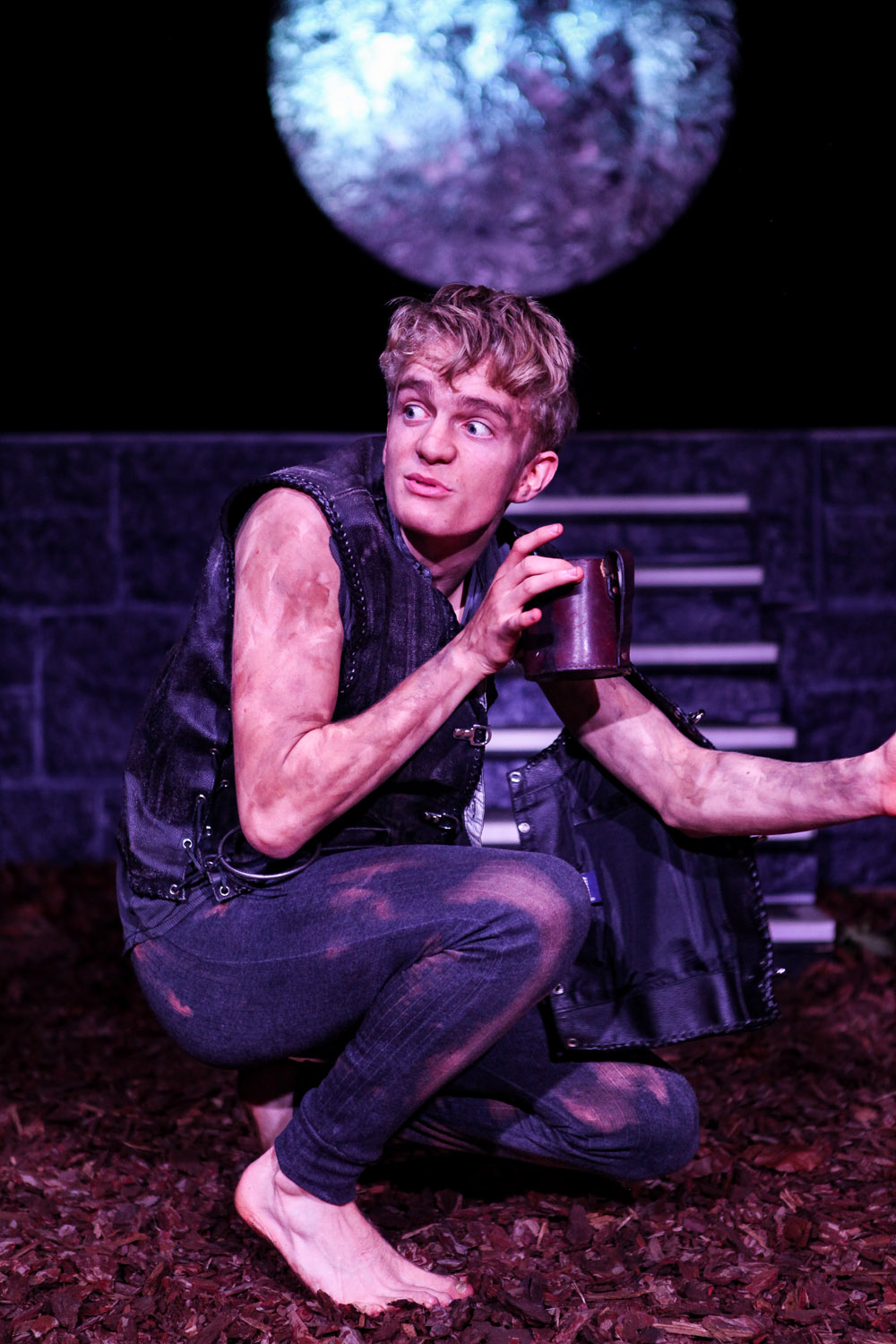
As this performance highlights, Macbeth is labelled ‘tyrant’ ‘usurper’ ‘coward’ ‘thief’ ‘traitor’ ‘butcher’ (never King) by those determined to restore the crown to the rightful heir, Malcolm. Jamie's Macbeth captures the restlessness and anxiety of this usurper, dressed in stolen robes. He is never able to feel secure and is miserable from the moment the crown touches his head. Jamie captures the transformation of a man, described in Act 1 as ‘Valour’s minion’ to the ostracised despot of Act 5. This performance then succeeds in giving him a small slice of redemption when, in the end, he returns to the role he knows: ‘at least we’ll die with harness on our back.’ Jamie plays these final scenes with maturity beyond his years, capturing the near relief of Macbeth, the fighter, who no longer needs to play at being King. Furthermore, the decision to keep the often-cut Hecate scene (3,5) and allow the Weird Sisters to intrude on additional scenes suggests that, maybe, Macbeth is puppeteered and unable to control his fate.
See more pictures of the Macbeth production by following this link
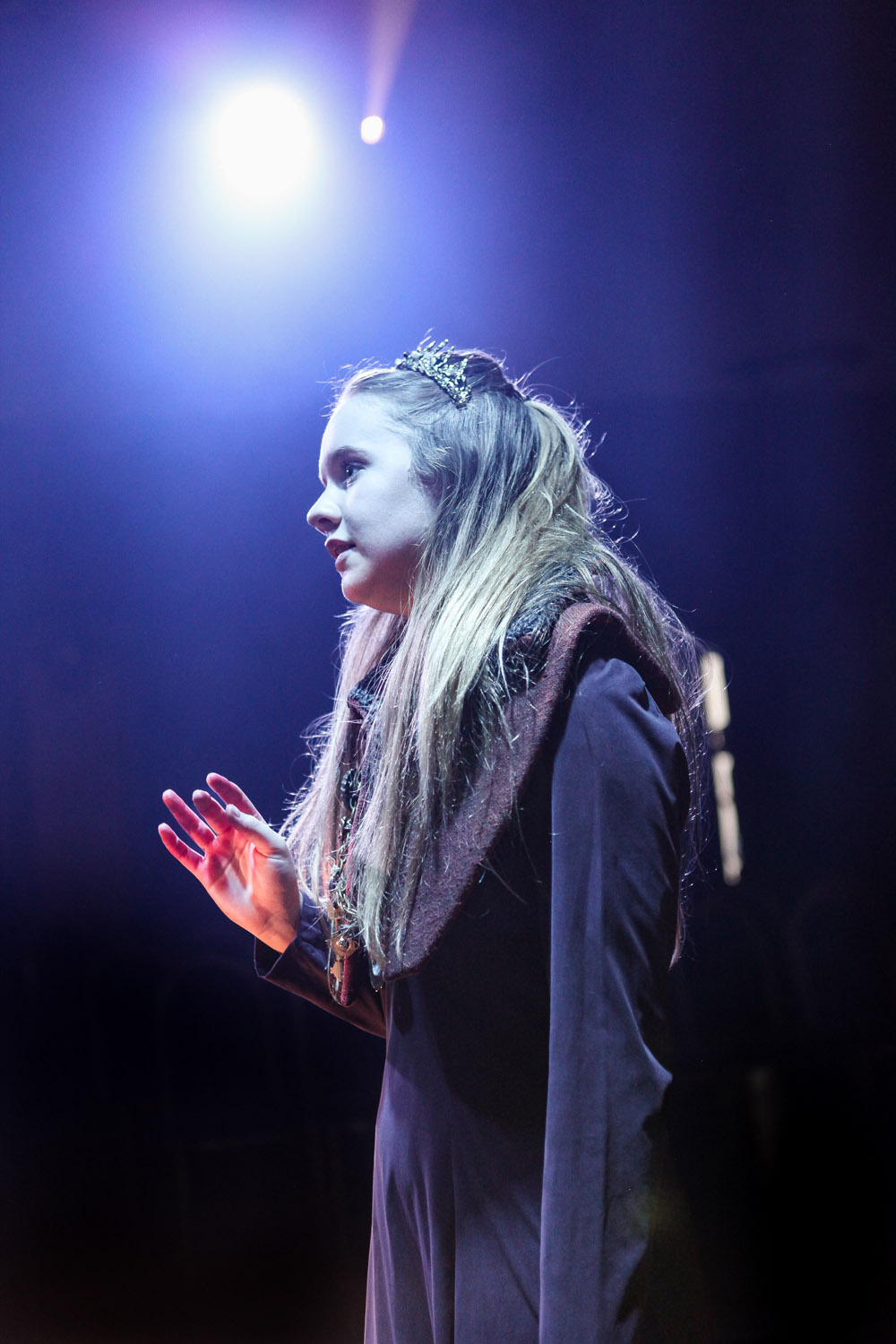
The Weird Sisters (Phoebe, Alex and Chloe) play an important role in this production, a production that consciously takes the story all the way back to its 11th Century Scottish origin. The audience is asked to sit around the stage, under the full moon. We’re transported into a world still dominated by pagan beliefs, where witchcraft and superstition hold sway and where Christianity is nascent. This makes it all the more believable that the earth should become ‘feverous’ and the night ‘unruly’ on the eve of Duncan’s murder. In a moment of unparalleled bathos, Macbeth himself sums it up: “Twas a rough night.’ Incidentally, it was also a rough night in the pre-Christian world of Julius Caesar (staged in 1599) when, on the eve of Caesar's assassination, ‘all the sway of the earth shakes like a thing infirm'.
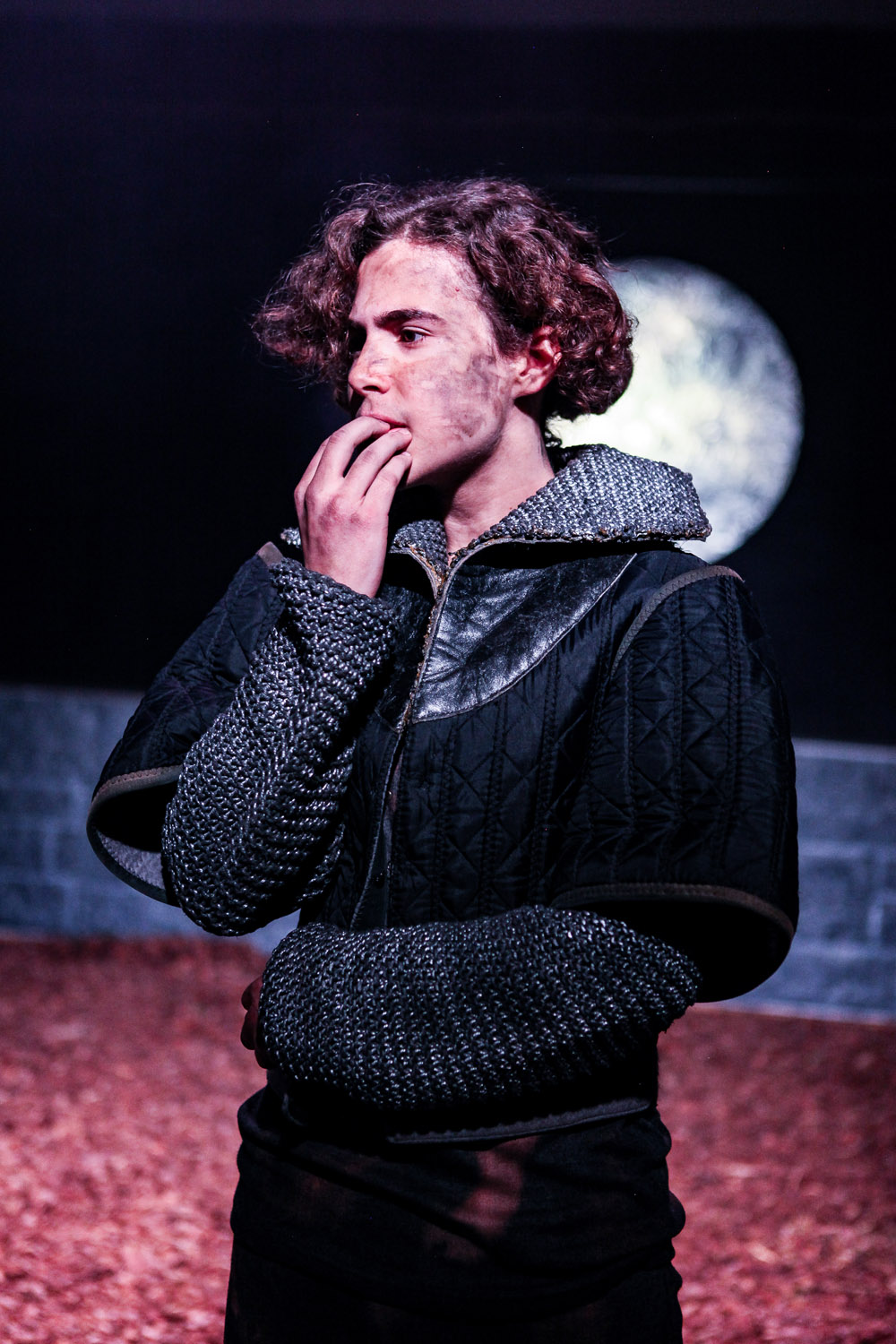
So, the scene is set. Macbeth is battle-bloodied, vulnerable and already prey to the prophecy. Enter Lady Macbeth. Luci brings a chill to the auditorium. The challenge of playing this role cannot be underestimated and Luci captures the cold ambition and quick intelligence of the character with confidence. Later, after the murder of Duncan, she rebukes Macbeth with the words ‘what’s done, is done.’ This is delivered with impatient perfection, making her decline into madness and final lament of ‘what’s done, cannot be undone’ all the more arresting.
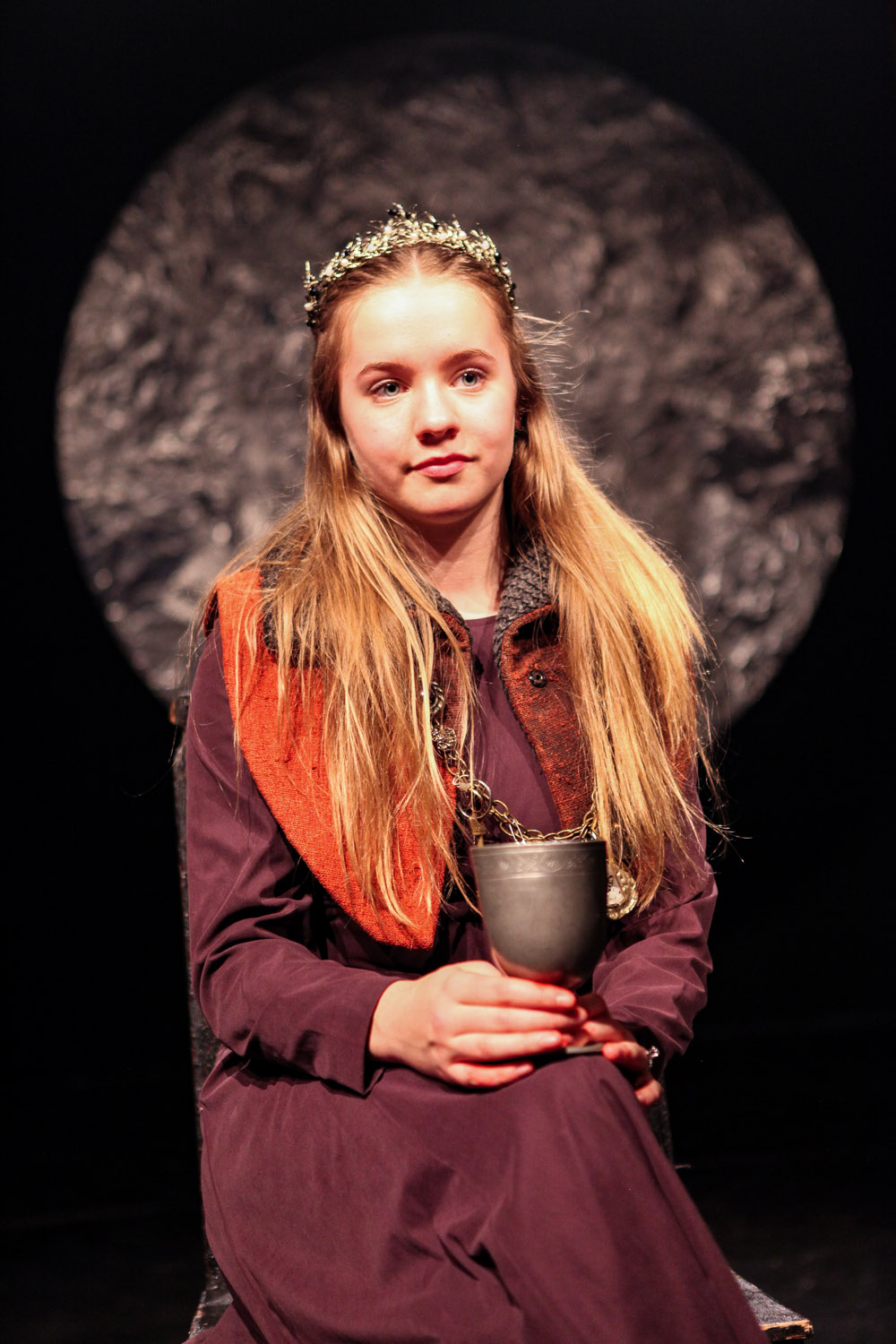
All the while, Samson's outstanding Banquo serves not only as Macbeth’s foil but as a character able to process the confusion and violence of this bleak world with good grace and a smile. His appearance as Banquo’s ghost is sinister and we are able to understand why Macbeth would rather confront the ‘rugged Russian bear’ than set eyes on him again.
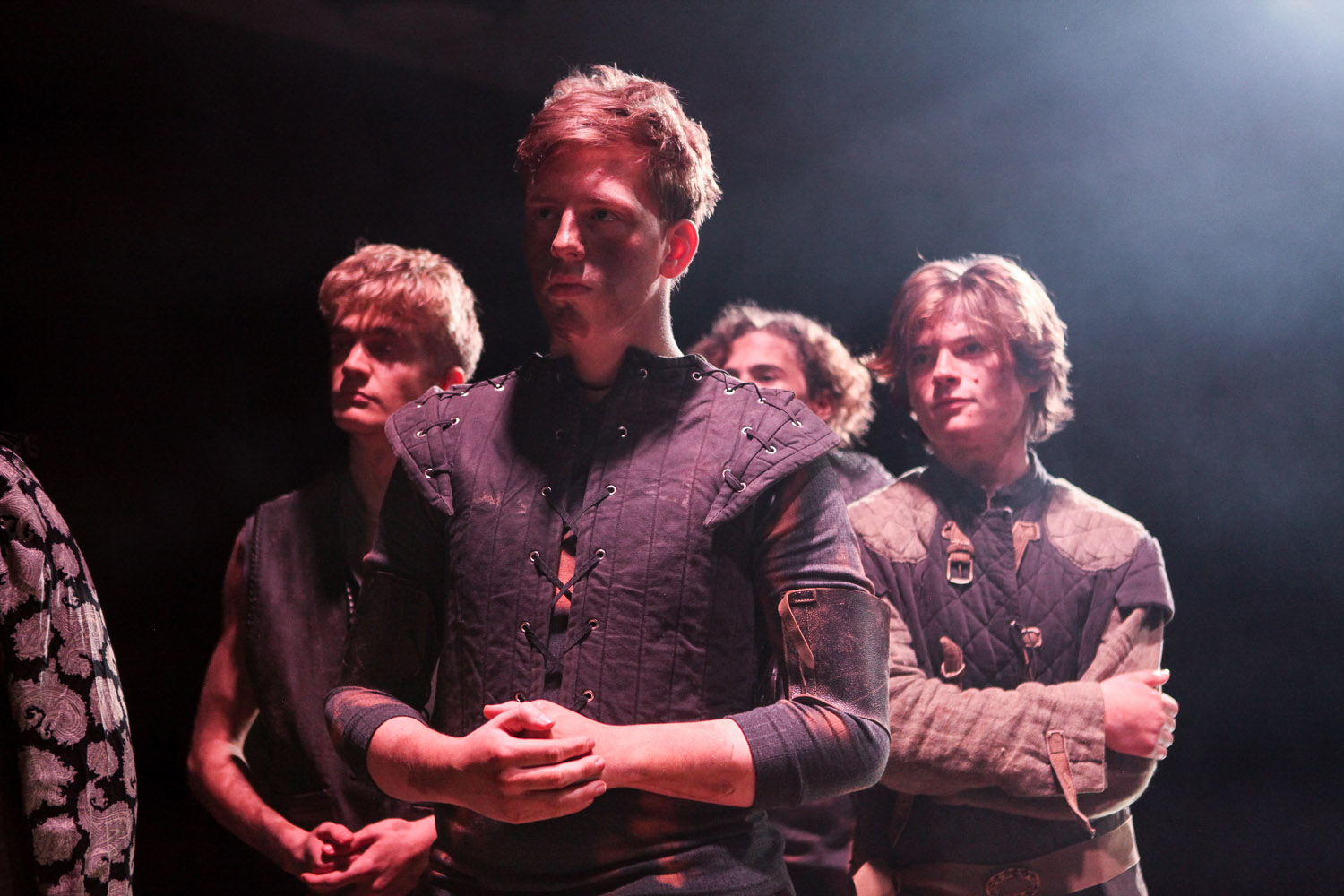
Finally, special mention must go to Jasper, who brings the porter to life with aplomb. In a production of Macbeth that feels Mediaeval, Jasper's porter gives us a satirical glimpse of Jacobean London. In the firing line are the Catholics and Jesuits, who tried to deny their involvement in the Gunpowder Plot through equivocation: ‘Knock, knock! Who’s there…? Faith, here’s an equivocator that could swear in both the scales against either scale, who committed treason enough for God’s sake yet could not equivocate to heaven.’ The audience (including James I) might have enjoyed laughing with this porter, at the expense of the Catholics, who couldn’t fool God.
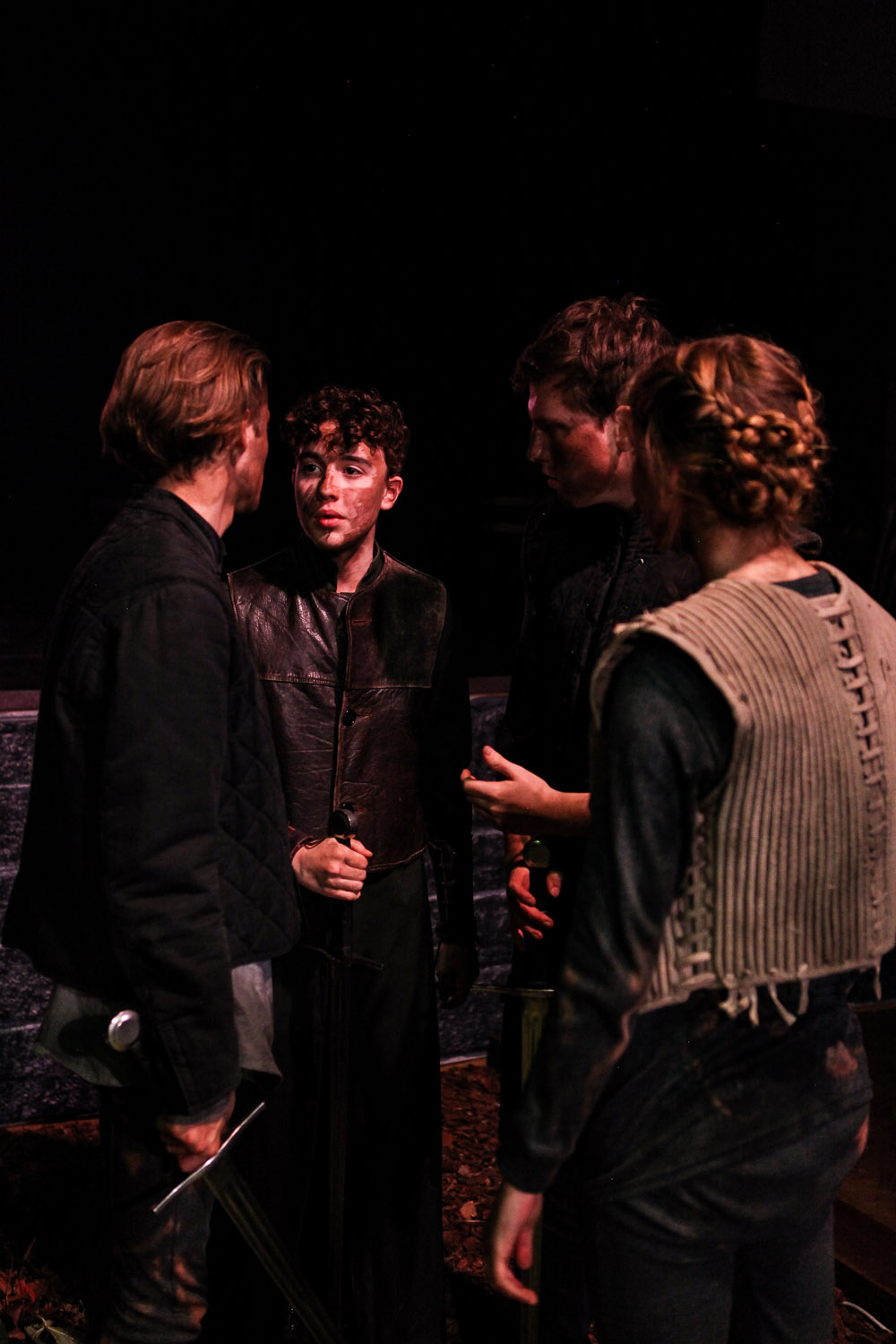
This performance of Macbeth is slick and professional. Decisions by the directors maximise the talents of a group of actors, who are keen to embrace the complexities of the script. Act Five is brilliantly busy. Ross (Woody), Malcolm (James), Macduff (Philippos) and Lennox (Rocco) - who had been excellent all evening - scurry with the Siwards and soldiers in and out of the short scenes. Macduff, whose presence had been imposing throughout, bristles with vengeful intent. By the time Macduff delivers Macbeth’s coup de grace he and his victim are sweating with the physicality of wielding the double-hilted swords. Even choreographing the battle in Act 5 Scene 8 would have taken months of work and is testament to the dedication of the team and cast.
Bravo. A ★★★★★ production.
